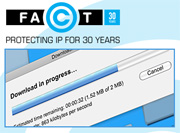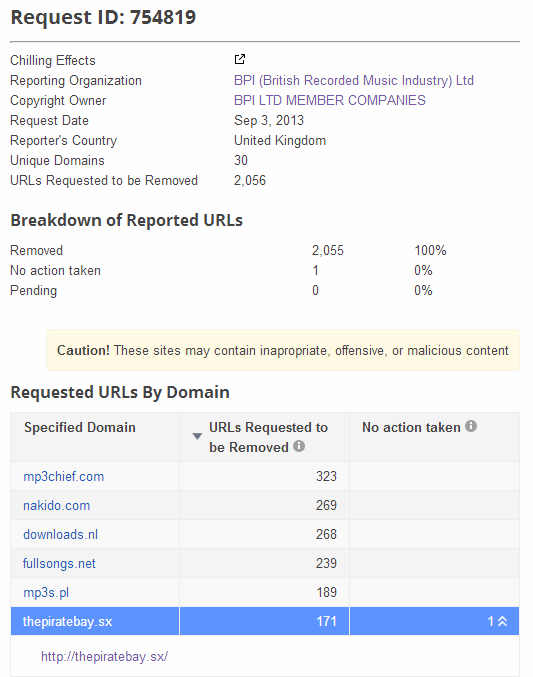Anti-Piracy “Strike” Schemes Are Not Effective, Research Shows
mardi 10 septembre 2013 à 19:39 In recent years many initiatives to curb online piracy have emerged and in several countries so-called graduated response schemes have been implemented.
In recent years many initiatives to curb online piracy have emerged and in several countries so-called graduated response schemes have been implemented.
In France, New Zealand, Taiwan and South Korea strikes schemes are baked into law, a similar policy is in place in Ireland, and earlier this year the United States rolled out its voluntary “alert” system commonly known as six-strikes.
The goal of these policies is to track down copyright infringers and warn them that their behavior is not acceptable. After repeat warnings, these accused file-sharers then face a penalty ranging from a fine to prolonged Internet disconnection.
Entertainment industry groups have lobbied hard to have these systems put in place and often describe the results as major successes. To assess how effective these plans really are Dr Rebecca Giblin of the Australian Monash University decided to look at the publicly available evidence that supports these claims.
The results of this evaluation, the most elaborate that has been published to date, was published this week in a 61-page article. Talking to TorrentFreak, Giblin says that the goal of the paper was to evaluate the effectiveness of graduated response schemes on three measures that are closely aligned with the purpose of copyright law.
What’s the evidence that these policies reduce infringement? What’s the evidence that they increase the size of the legitimate market? What evidence is there to show that they encourage the creation and dissemination of a wide range of content?
The paper shows that the graduated response schemes fail on all accounts.
“Rightsholders make big claims that graduated responses are ‘successful’ and ‘effective’ to argue for their continued adoption, but the evidence doesn’t back them up. The paper finds little to no evidence that any form of graduated response reduces infringement or increases the size of the legitimate market,” Giblin tells TorrentFreak.
The paper mentions, for example, that all of the studies that claim to have found a reduction in P2P usage are biased towards copyright holders and not peer-reviewed. In addition, they consistently ignore that people may have switched to other forms of piracy, through streaming websites and cyberlockers.
Similarly, a study suggesting that iTunes sales went up in France after Hadopi was announced, is criticized as the effect may very well be explained by third factors such as the surge in iPhone sales. The results are further put into doubt as revenues in the French music industry as a whole decreased, while there was a clear uptick in nine of the top 20 markets over the same period.
The third measure of effectiveness, whether the “strike” schemes improve access to and the creation of content, doesn’t pass the test either.
“Regarding the third aim, it finds that France is the only jurisdiction to really require rightholders to provide greater access to content in exchange for their new enforcement rights. However, it finds that many existing graduated responses have structural biases in favour of so-called ‘Big Content’,” Giblin tells us.
Giblin says that not all copyright holders are treated equally under the graduated response schemes. The major music labels and movie companies often have more influence, if smaller parties are allowed to participate at all.
Despite this, the major industry players may not see an increase in production either, since there is no solid evidence that fewer people are pirating.
“In reality graduated responses are unlikely to actually result in greater production even of that type because they don’t actually reduce infringement or increase the size of legitimate markets; but this demonstrates a level of structural capture in the lawmaking process that is deeply troubling,” Giblin says.
On the upside Giblin notes that the movie and music industries are breaking revenue records year after year. However, there’s no evidence any of these are the result of graduated response schemes.
In fact, the expensive anti-piracy policies may be a losing strategy which policy makers have to reconsider.
“International policymakers considering adoption need to carefully consider the policy aims they wish to achieve, and evaluate whether a graduated response would actually help them to do so. They cannot simply accept rightholders’ claims of ‘success’ or ‘effectiveness’ at face value,” Giblin says.
“Regulators who already have graduated responses should also do a cost/benefit analysis in light of the evidence, and decide whether it’s desirable to keep them,” she adds.
Source: Anti-Piracy “Strike” Schemes Are Not Effective, Research Shows



 Earlier this year we
Earlier this year we 